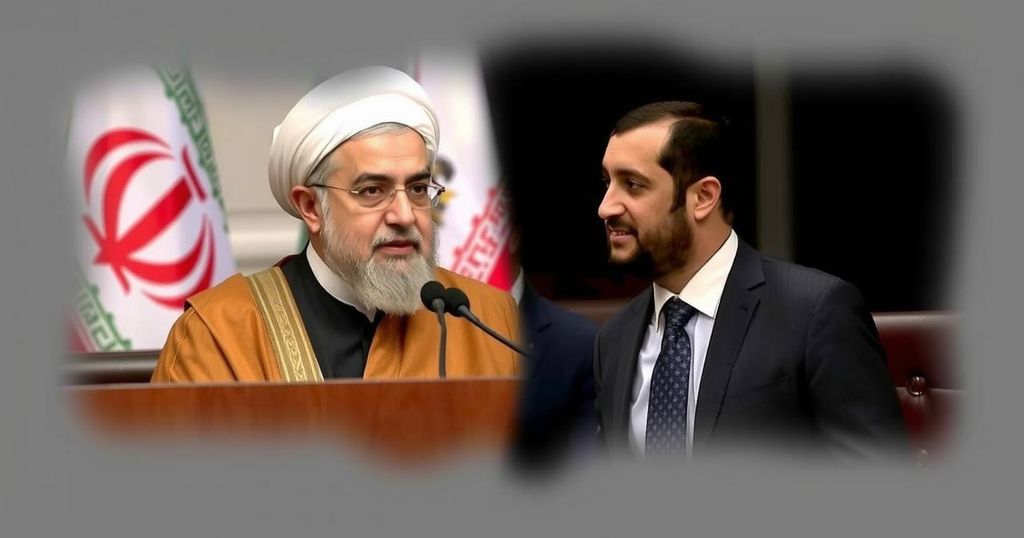Jordan’s Engagement with Syria Marks a Shift in Regional Diplomacy

Jordan’s Foreign Minister Ayman Safadi met Syria’s new leader Ahmed Al-Sharaa in Damascus, marking a significant diplomatic engagement following Bashar Assad’s overthrow. Jordan emphasizes support for the Syrian people while facilitating stability and security, especially regarding returning refugees and border management against drug smuggling. Recent discussions reflect Jordan’s ongoing efforts to restore relations and promote peace in the war-torn nation.
On Monday, Jordan’s Foreign Minister, Ayman Safadi, engaged in dialogue with Syria’s newly appointed leader, Ahmed Al-Sharaa, in Damascus, marking the first visit by a senior Jordanian official following the ouster of Bashar Assad. The meeting, which included interactions with several Syrian officials, underscores Jordan’s commitment to restoring partnership and stability in the region. Recent images shared by the Jordanian Foreign Ministry displayed the two leaders in a cordial greeting, signaling Jordan’s interest in fostering constructive relations with Syria.
The Jordanian government has repeatedly emphasized its stance aligned with the aspirations of the Syrian populace. Government spokesman Mohamed Momani stated, “Amman sides with the will of the brotherly Syrian people,” showcasing Jordan’s solidarity with its neighbor. Jordan’s objective remains clear: promote stability within Syria, which is essential for securing its borders and ensuring national security.
During a recent summit in Jordan, high-ranking diplomats from Arab states, Turkey, the EU, and the United States convened and advocated for an inclusive and peaceful transition in Syria after prolonged civil strife. Al-Sharaa’s leadership, emerging from the Islamist faction Hayat Tahrir Al-Sham (HTS) that played a pivotal role in the downfall of Assad, has enabled him to receive delegations from various countries, further complicating the regional dynamics.
Recent reports indicate that an increasing number of Syrian refugees have begun to return home, with over 7,000 having left Jordan’s territory throughout the past few weeks. This number represents just a fraction of the approximately 1.3 million Syrian refugees currently residing in Jordan, a country that has recently tightened its border security measures amid concerns over drug and weapon smuggling, particularly the prevalent amphetamine known as captagon.
Through these various diplomatic and humanitarian efforts, Jordan seeks to contribute towards restoring coherence and security in Syria while simultaneously processing the influx of returning refugees and tackling the challenges posed by smuggling along its extensive border.
The ongoing conflict in Syria, which began in 2011, has led to a significant humanitarian crisis, resulting in millions of displaced individuals both within and outside of the country. Jordan, as a neighboring nation, has been a critical host for Syrian refugees, providing sanctuary to approximately 1.3 million individuals. The recent political changes following the ousting of Bashar Assad have created a shifting landscape, prompting Arab nations to recalibrate their diplomatic relationships with Syria. Jordan’s proactive diplomatic efforts signify its intent to stabilize the region and support the returning refugees amidst ongoing security threats.
In conclusion, the meeting between Jordan’s Foreign Minister Ayman Safadi and Syria’s new leader Ahmed Al-Sharaa appears to underscore Jordan’s commitment to supporting the Syrian people and advocating for stability in the region. By reinforcing diplomatic ties and addressing refugee concerns, Jordan aims to contribute to peace and coherence in Syria while managing the delicate balance of border security amidst ongoing challenges. The gradual return of Syrian refugees to their home country signals a significant step toward recovery, yet highlights the complexity of the situation on the ground.
Original Source: www.arabnews.com








